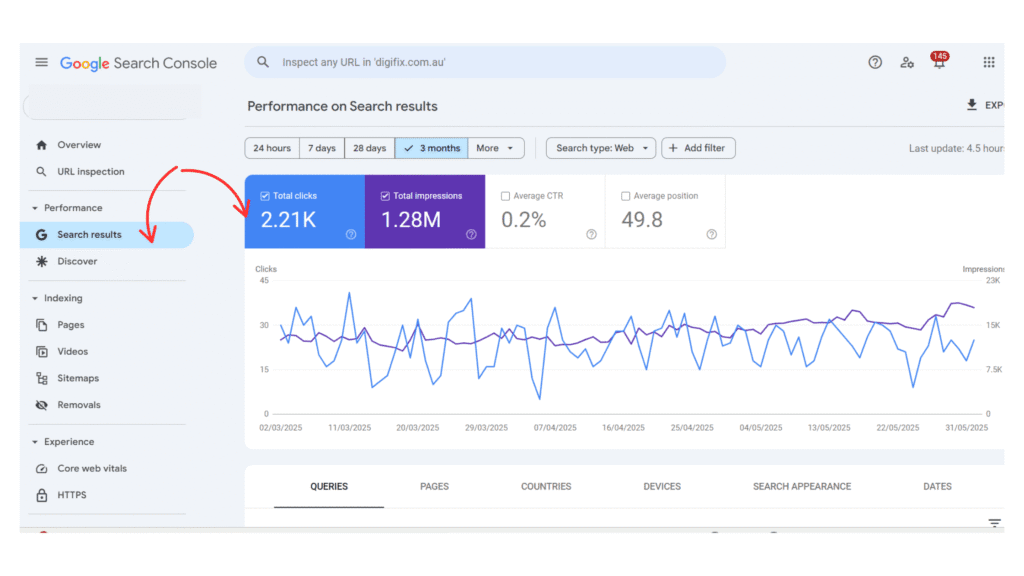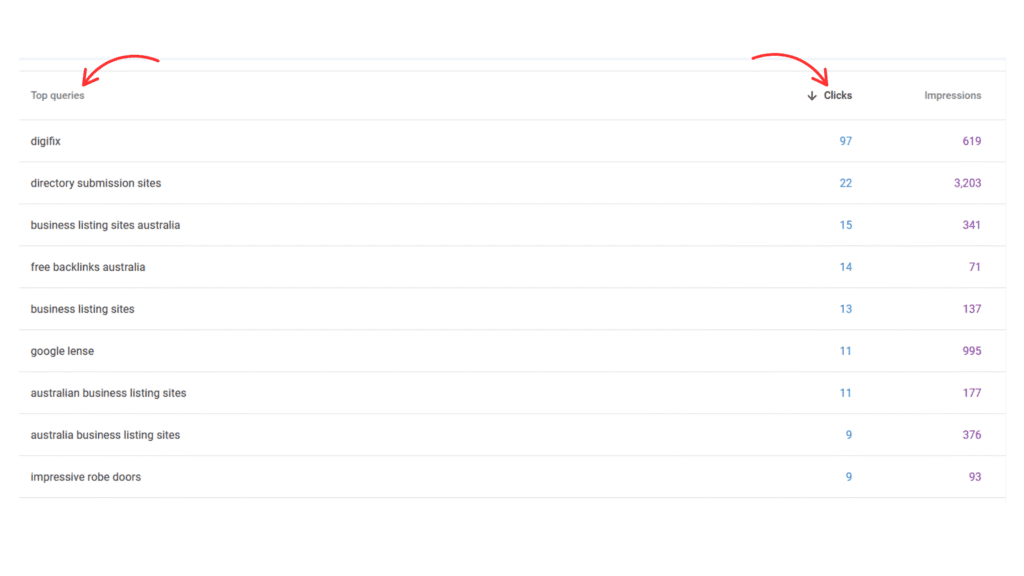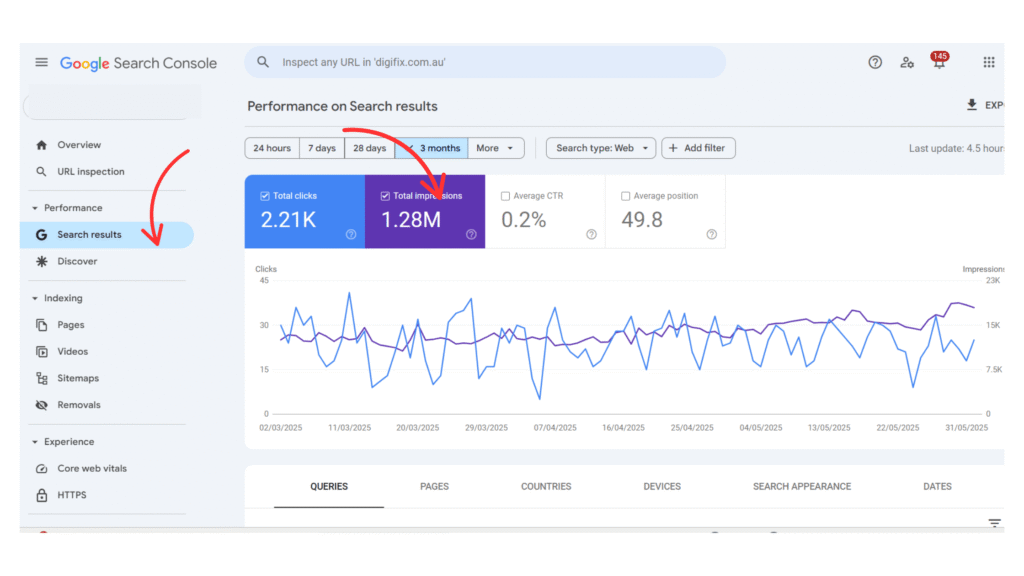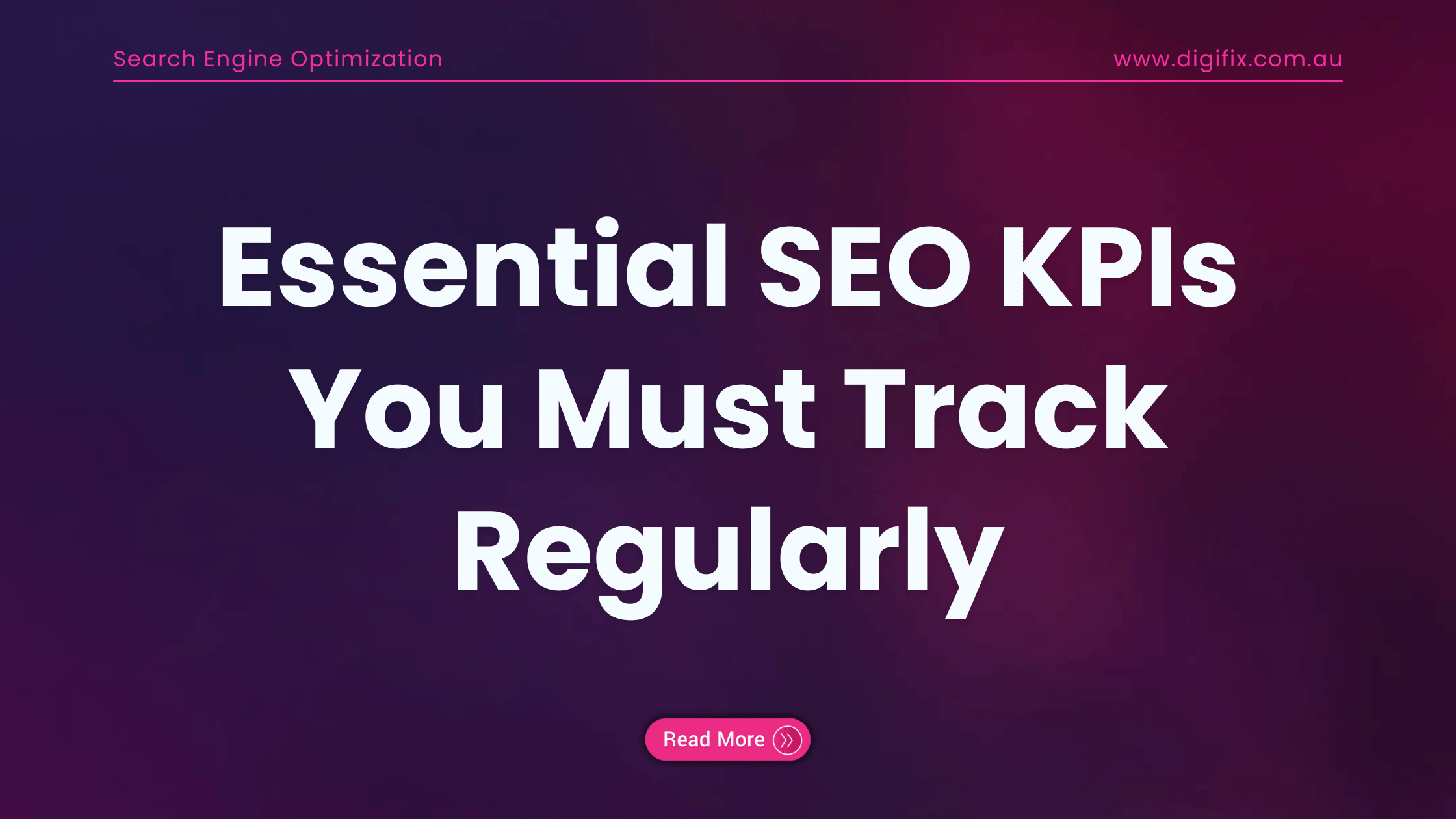No SEO campaign is complete without clearly defined SEO KPIs (Search Engine Optimization Key Performance Indicators). These metrics are critical for understanding how well your search engine optimisation efforts are performing. Whether you’re managing SEO in-house or through an agency, tracking SEO KPIs ensures you can measure, refine, and justify your marketing efforts.
In today’s competitive digital landscape, it’s not enough to launch an SEO strategy and hope for the best. You must continuously monitor progress to ensure your tactics are aligned with your business goals. That’s where SEO Key Performance Indicators come in—they help quantify success and highlight areas needing improvement.
What Are SEO KPIs?
SEO KPIs are measurable values that indicate the effectiveness of your SEO campaigns. They help marketers and business owners assess how well their websites rank, how much organic traffic they’re attracting, and whether or not that traffic is converting into valuable actions like sales, leads, or sign-ups.
In essence, SEO Key Performance Indicators act as a roadmap. They tell you:
- What’s working well in your SEO strategy
- Where you may need to pivot or invest more resources
- How your results align with business objectives
Without these indicators, SEO efforts can become guesswork. Measuring your performance allows you to make informed decisions backed by data.
Why Are SEO KPIs Important?
Setting and monitoring SEO KPIs is essential for the long-term success of any SEO campaign. Here’s why:
1. They Align SEO with Business Goals
SEO should drive real business outcomes—not just rankings. When you track the right KPIs, you can see how SEO contributes to goals like lead generation, e-commerce sales, or customer acquisition.
2. They Enable Data-Driven Decision-Making
Instead of relying on intuition or assumptions, KPIs give you hard data. This allows you to refine your strategy based on actual performance.
3. They Help Justify SEO Investment
When stakeholders ask, “What’s the ROI of our SEO efforts?”, your KPIs will provide the answer. Metrics like organic traffic, conversion rate, and ROI from organic channels demonstrate the tangible value of SEO.
4. They Identify Strengths and Weaknesses
By regularly reviewing SEO KPIs, you can spot high-performing areas and address underperforming pages or content before they drag down your overall performance.
Essential SEO KPIs to Track for Measurable Growth
These essential SEO KPIs are worth tracking regardless of your ultimate business objective. Whether you want to generate leads, increase sales, or grow brand awareness, these core metrics provide a clear picture of your website’s performance. Monitoring them consistently helps you make informed decisions and improve your search engine visibility.
1. Organic Traffic
Organic traffic is all unpaid traffic to your website through search engines like Google, Bing, or Yahoo. It’s one of the most essential SEO KPIs to track, as it reflects how visible your site is in organic search results and how effectively it attracts users.
Why Track It?
The more organic traffic your website receives, the better your overall visibility in search engine results pages (SERPs). Higher visibility means more potential to reach your target audience and drive meaningful engagement.
However, it’s important to remember that organic traffic doesn’t always equate to immediate revenue—unless your site is monetised through ads or you have a strong sales funnel. Still, it’s a top-level indicator of your SEO performance.
How to Track Organic Traffic?
You can accurately measure organic traffic using Google Search Console (GSC). If your site is verified:
- Go to “Performance” > “Search results”
Select “Total Clicks” to see the number of visits from organic search

- Review which keywords and landing pages are driving traffic

This insight helps you understand which content performs best and which keywords are helping your pages rank. Organic traffic is a foundational metric when asking, “How do you measure SEO performance?”
2. Organic Visibility
Organic visibility, also known as search visibility, is a critical SEO KPI that measures how prominently your website or brand appears in search engine results for relevant queries. While it may not be a direct conversion metric, it plays a foundational role in shaping long-term SEO success and business growth.
Why Track It?
Some marketers overlook organic visibility because it doesn’t tie directly to immediate conversions. However, this is a mistake. Organic visibility is strongly linked to brand exposure, audience reach, and ultimately, higher organic traffic and engagement rates.
Improving your visibility means your content is consistently showing up in the search engine results pages (SERPs)—increasing the chances that potential customers discover your business when they search for topics related to your products or services.
A rise in visibility often precedes growth in traffic, keyword rankings, and conversions, making it one of the SEO Key Performance Indicators you should track as part of a comprehensive strategy.
How to Track Organic Visibility?
You can measure organic visibility using tools such as:
Google Search Console (GSC):
Go to Performance > Search results, then look at the “Total Impressions” metric.

It shows how often your pages appeared in search results, even if users didn’t click.
It’s one of the most insightful SEO KPIs to track when evaluating the overall health and progress of your SEO strategy.
3. Domain Authority (DA)
Domain Authority represents the overall strength and credibility of a website domain. Measured on a 100-point logarithmic scale, this score is provided by SEO tools like Semrush, Ahrefs, and Moz. While DA is not a Google ranking factor, it is a reliable indicator of a site’s SEO health and potential to rank.
Higher DA scores often correlate with stronger backlink profiles and better visibility in search engine results. Monitoring your DA over time can help assess the effectiveness of your SEO efforts—such as content creation, link building, and technical optimisations—and guide your strategy toward continued growth.
4. Keyword Rankings
Keyword rankings are a core SEO KPI that measure where your website appears in search engine results for specific keywords. Tracking keyword performance provides insights into how visible your content is to your target audience and how effectively it aligns with their search intent. Improving your keyword rankings often results in increased organic traffic, brand visibility, and lead generation.
Regularly analysing changes in rankings can help refine your SEO strategy, identify new content opportunities, and ensure your site remains competitive.
5. Core Web Vitals
Core Web Vitals are a set of user experience metrics introduced by Google that directly affect your site’s SEO performance. They measure how fast, stable, and responsive your web pages are for real users. These metrics are now official ranking factors, making them a crucial SEO KPI to monitor and improve.
The three primary Core Web Vitals include:
Largest Contentful Paint (LCP):
Measures loading performance. It tracks how long it takes for the largest content element (e.g., image or text block) to become visible.
Target: Under 2.5 seconds.
First Input Delay (FID):
Measures interactivity—how quickly your site responds when a user first interacts (e.g., clicking a link or button).
Target: Under 100 milliseconds.
Cumulative Layout Shift (CLS):
Measures visual stability by tracking how often elements move around unexpectedly during page load.
Target: Less than 0.1.
These metrics help ensure that your website delivers a smooth, fast, and frustration-free experience, which improves user satisfaction and engagement—key factors for ranking well in search engines.
Tools to Monitor:
- Google Search Console (Core Web Vitals report)
- Google PageSpeed Insights
- Lighthouse / Chrome DevTools
By regularly tracking and optimising your Core Web Vitals, you can improve both user experience and your site’s visibility in search engine results.
6. Organic Conversions
This KPI tracks the number of desired actions taken by users who arrive at your website via organic search. Examples include purchases, form submissions, newsletter signups, or file downloads.
Why it matters: Organic conversions indicate that your SEO efforts are driving meaningful business outcomes.
Tool: Google Analytics (ensure conversion tracking is properly set up through goals or GA4 events)
7. SEO ROI (Return on Investment)
SEO ROI measures the financial return generated from your SEO investment. This involves assigning a monetary value to each conversion and comparing the revenue earned with your total SEO costs (e.g., tools, agency fees, salaries).
Formula:
((Revenue from SEO – Cost of SEO) / Cost of SEO) × 100
Why it matters: SEO ROI is essential for demonstrating the cost-effectiveness of your strategy and justifying continued investment.
Tool: Custom reporting via spreadsheets or dashboards, integrating data from Google Analytics and expense tracking.
8. Referring Domains
This tracks the number of unique websites that link to your domain. Unlike total backlinks, this metric focuses on domain diversity, which is a strong trust and authority signal to search engines.
Why it matters: A higher number of quality referring domains improves your website’s authority and can positively impact rankings.
Tool: Ahrefs, Semrush, Moz, Google Search Console (Links report)
9. New Backlinks Earned
This metric shows how many new backlinks your website has acquired within a specific time frame (e.g., weekly, or monthly). It helps track the success of your link-building campaigns and content marketing efforts.
Why it matters: Regular backlink growth, especially from high-authority sites, signals content value and improves SEO performance.
Tool: Ahrefs, Semrush, Moz (Backlink tracking tools)
Monitoring these performance-based KPIs ensures your SEO strategy not only brings in traffic but also drives business growth, revenue, and long-term authority. Together with technical and content KPIs, they give a complete view of your SEO success.
10. Branded vs Non-branded traffic
Branded traffic Comes from searches that include your brand name (e.g., “Nike shoes”). It indicates brand awareness. Non-branded traffic Comes from searches for generic terms related to your products or services (e.g., “running shoes”). It indicates your ability to capture new audiences.
Technical SEO KPIs
Technical SEO KPIs focus on the structural and technical health of a website. These metrics do not directly involve content or keywords. However, they are essential for ensuring that search engines can access, crawl, index, and understand your site. Even the best content may not rank, without a solid technical foundation
1. Crawl Errors
Crawl errors occur when search engine bots (like Googlebot) fail to access specific pages on your website. These errors can stem from broken links, server issues, misconfigured robots.txt files, or incorrect redirects.
Why it matters: If bots can’t crawl your pages, they can’t index them, which means those pages won’t appear in search results.
Tool: Google Search Console (Crawl Stats, Indexing Report)
2. Indexed Pages
This metric shows how many of your website’s pages are indexed by Google. A significant gap between the number of published pages and the number of indexed pages could indicate problems with crawlability or duplicate/thin content.
Why it matters: Only indexed pages can show up in search results.
Tools:
- Google Search Console (Pages Indexing Report)
- site:yourdomain.com query in Google search
3. HTTPS Usage
A secure website using HTTPS (via an SSL certificate) is a minor ranking factor but builds user trust. Google flags non-HTTPS sites as “Not Secure,” which can deter users.
Why it matters: HTTPS ensures data encryption, improves security, and is expected by users.
Tools:
- Google Search Console
- Manual check in your browser (look for the padlock icon)
4. Mobile Responsiveness
This measures how well your website displays and functions on mobile devices. With Google’s mobile-first indexing, the mobile version of your site is now the primary version used for indexing and ranking.
Why it matters: A poor mobile experience can lead to higher bounce rates and lower rankings.
Tools:
- Google Search Console (Mobile Usability Report)
- Google’s Mobile-Friendly Test
By monitoring these technical SEO KPIs, you ensure that your website is properly structured and accessible, laying the groundwork for better performance across all other SEO areas. Regular audits and timely fixes can prevent major indexing issues and improve overall site health.
Conclusion
Tracking the right SEO KPIs is essential for understanding the effectiveness of your digital strategy and achieving long-term search success. From technical health and content performance to link-building and ROI, these metrics provide actionable insights that help you refine your SEO efforts, boost visibility, and drive real business growth.
If you’re looking to improve your rankings, generate more organic traffic, and convert visitors into loyal customers, DigiFix is here to help. As a results-driven SEO agency in Melbourne, we tailor strategies that align with your business goals and deliver measurable outcomes.
Book your FREE first consultation with DigiFix today and discover how our expert SEO services can elevate your online presence.
FAQs: Essential SEO KPIs to Track
1. What are SEO KPIs, and why are they important?
SEO KPIs (Key Performance Indicators) are measurable metrics that help assess the effectiveness of your SEO strategies. They’re important because they align your SEO efforts with business goals, track progress, identify areas of improvement, and justify your marketing investment with data.
2. How often should I review my SEO KPIs?
It’s best to review your SEO KPIs monthly or quarterly, depending on the scale of your campaign. Some metrics like keyword rankings or organic traffic can be tracked more frequently, while ROI and domain authority are better assessed over time.
3. What tools are best for tracking SEO KPIs?
Some of the most widely used tools include:
- Google Search Console – for organic traffic, visibility, crawl errors, and indexing
- Google Analytics – for tracking organic conversions and user behaviour
- Ahrefs, Semrush, Moz – for backlink analysis, keyword rankings, and domain authority
- Google PageSpeed Insights – for Core Web Vitals and page performance metrics
4. How do I know if my SEO is working?
If you’re seeing a steady increase in organic traffic, better keyword rankings, improved conversion rates, and a higher return on investment (ROI), your SEO is on the right track. Monitoring the right KPIs regularly gives you the clearest picture of SEO performance.
5. Which SEO KPI is most important for small businesses?
Organic traffic, keyword rankings, and organic conversions are especially critical for small businesses. These metrics directly show whether your website reaches the right audience and turns visitors into leads or customers.
6. What’s the difference between branded and non-branded traffic?
- Branded traffic comes from users searching specifically for your brand name (e.g., “DigiFix SEO agency”).
- Non-branded traffic comes from generic searches related to your services or industry (e.g., “SEO company in Melbourne”).
- Tracking both helps you understand brand awareness and how well you’re attracting new customers.
7. Can I track SEO KPIs without using paid tools?
Yes. Tools like Google Search Console, Google Analytics, and Google PageSpeed Insights are free and offer powerful insights. However, advanced tools like Ahrefs and Semrush provide deeper analysis for larger or more competitive campaigns.
8. What is a good SEO ROI?
A “good” SEO ROI depends on your industry, budget, and business goals. However, an ROI greater than 100% (i.e., earning more than you spend) is generally a positive sign. The key is to ensure your SEO investment contributes to measurable business growth.
9. How do Core Web Vitals impact SEO?
Core Web Vitals are part of Google’s ranking signals and reflect the user experience of your website. A poor score can negatively affect your rankings, especially on mobile. Optimising page load speed, interactivity, and visual stability helps improve both user experience and search visibility.
10. Can DigiFix help me track and improve my SEO KPIs?
Absolutely! DigiFix offers customised SEO strategies backed by in-depth KPI tracking and reporting. Whether aiming to increase traffic, boost rankings, or improve conversions, our Melbourne-based SEO experts are here to deliver results that align with your business goals.





0 Comments